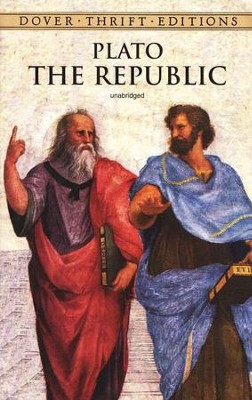In the year 1787, as he was leaving the Constitutional Convention, the legend is told that Benjamin Franklin was asked by a woman what kind of government the convention was giving us. His reply, "A republic, madam, if you can keep it."
I have recently retired after almost 20 years of teaching philosophy to college freshmen and sophomores. In my Introduction to Philosophy class, each week we read one of the dialogues of Plato. In Introduction to Ethics, we read a book of Aristotle's Nicomachean Ethics. I had my students doing this reading because I am committed to the use of primary sources. But I did it with the realization that I did not agree on many things with either of these two great Greek minds. In Aristotle's case, it is not difficult to detect traces of classism. His elitist upbringing in the royal court--as son of the royal physician of the king of Macedonia--colors his view even of his virtue ethics. I like virtue ethics, but I do think that their applicability is not well suited to persons who have not had the advantages in life Aristotle himself had.
Similarly, Plato was also an elitist. His idea of a republic was one in which society was governed by the intellectual elite. He thought that artisans, guardians, and philosopher-kings were distinct classes in a society and that the philosopher-kings should make all the important decisions. He said that these philosopher-kings should do so making sure they look out for everyone's interests, however. When my wife learned that Plato thought society should be governed only by professional philosophers, her response was something like, "I am married to one. I think that is a horrible idea."
Now Plato did have a couple of ideas in his concept of a Republic which I like. He said that those who govern should not own private property because of the tendency of wealth to corrupt people. I think if one had to liquidate their assets and put the proceeds in a totally blind trust, to even run for office, we would get better government. He also said that the structure of society was not static, that artisans and guardians should be able to become philosopher-kings through education and experience. So he had structure, but not a caste system.
All in all though, I think the idea of a Republic is not a morally legitimate idea at all because it depends, by definition on minority rule, and I do not believe human nature is well-suited for minorities to rule in ways which benefit everyone. In the case of the United States, I especially think the idea of a Republic is subversive of human freedom and dignity. I believe there is a significant white supremacist presence in this country which makes it the moral equivalent of pre-apartheid South Africa.
Think about it. Whoever the "madam" was, that Ben Franklin spoke to that day in 1787, neither he nor any other member of the Constitutional Convention, intended for her, or those who share her gender, nor people of color, nor indigenous persons, to have a share in the decision-making of that Republic. Minority rule is part of what they intended to give us. And I do not care if it is big R Republicanism, or little r republicanism, I think minority rule is exactly what that philosophy wants to see, and the plethora of voter suppression legislation we have seen just since 2020 is exhibit one.
This is not politics, this is morality. As one of my heroes, New York Times columnist Charles M. Blow, points out, it is impossible to say we had to have time to get to full equality. The founders knew the people they oppressed or excluded were created in the image of God just as much as they were. Unlike Plato, the founders did not intend upward mobility unless one was already a white male. They intended a caste system.
About 15 years ago, I was explaining Plato's Republic in class and I mentioned that the founders wanted only white, male, property owners to be able to vote. A student said, "That's a great idea!" I asked why and he said property owners were obviously smarter than non-property owners. I asked, and he confirmed he owned a home. At that point, in my mid-40s, I was a bivocational pastor who had lived in either an apartment or rental house or a parsonage my entire adult life. I had never owned a home at all. I inquired as to whether he thought that meant I should not be allowed to vote. He declined answering my question.
I believe big R Republicans are fearful, because, having lost the popular vote in 7 of the last 8 presidential elections, they know the political trendlines are not going in their direction. Hence, efforts to make it harder to vote. Big R or little r, I think that republicanism is an assault on freedom and dignity. The party which has been supposedly for freedom is now no longer so, because they never really were. I think they have only wanted freedom for their own tribe. I believe it is time to completely scuttle the idea of a republic as unworthy of humanity, and replace it with the concept of representative democracy.


No comments:
Post a Comment